By Lynn Lee
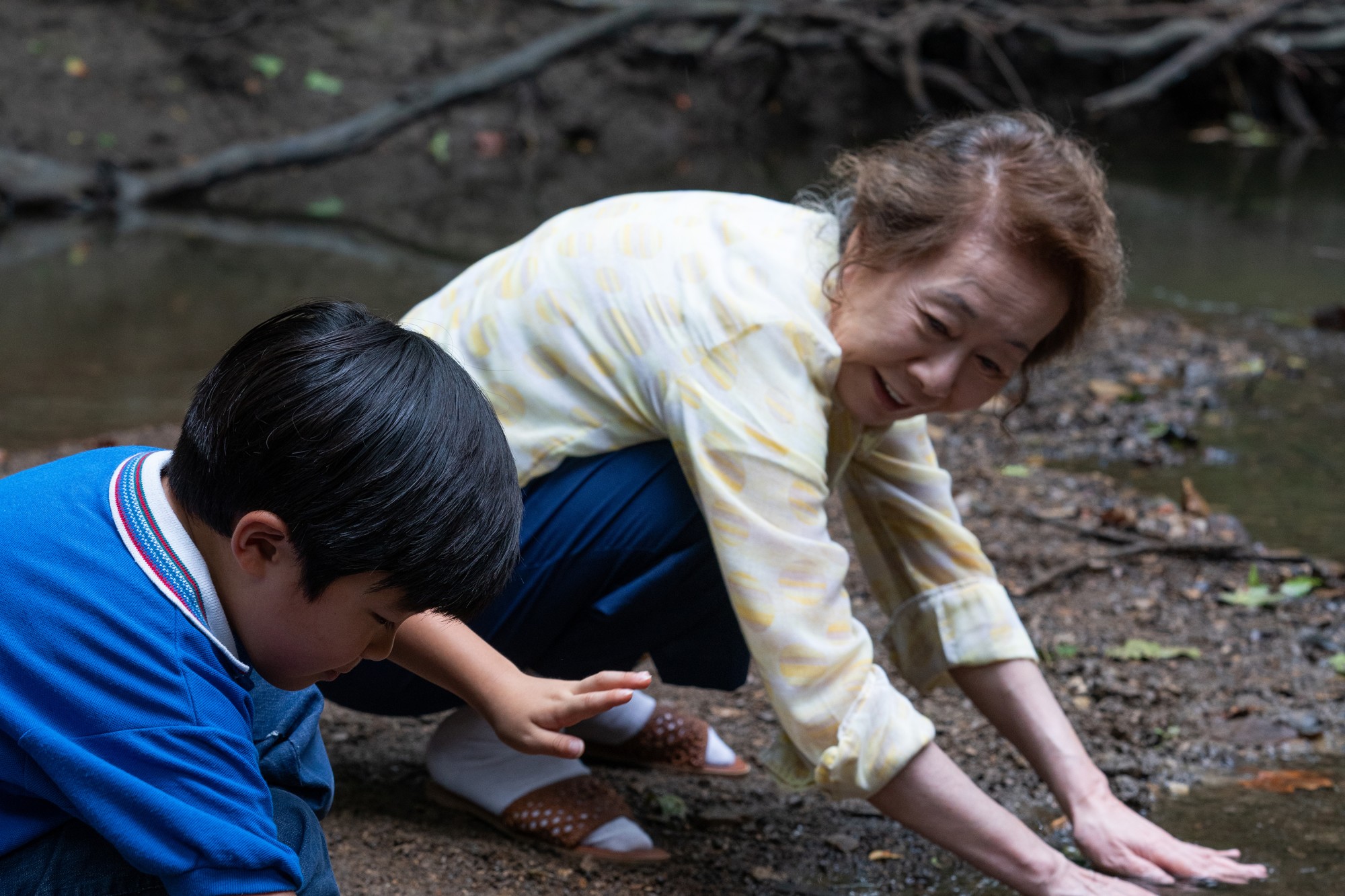
This is a story about grandmothers.
Having finally seen Minari, I’d originally intended to write about its place in the evolution of Asian American film over the last 20 years. Or about Steven Yeun becoming the new face of Asian American masculinity in Hollywood. But I couldn’t stop thinking about the Korean grandmother, Soon-ja, played by Youn Yuh-jung, because she reminded me so much of my own late grandmother. Youn’s vibrant, hugely endearing performance—still Minari’s best shot at an Oscar acting nomination—and the cultural specificity of her character struck a chord of recognition that reverberated right to and through my core...
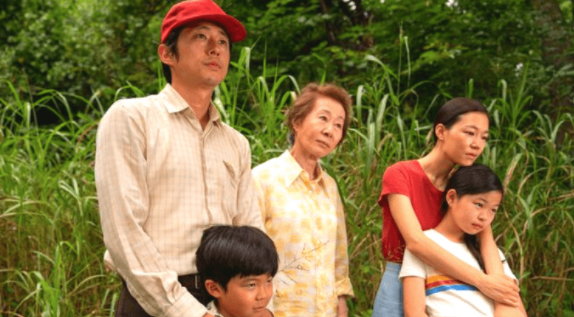
In the movie, Soon-ja moves from Korea to the Yi family’s farm in Arkansas, ostensibly to help with the kids, but really to provide company and support to her daughter, Monica (Han Ye-ri), who’s unhappy at being uprooted from their more stable (and social) life in California. Soon-ja doesn’t take sides or try to mediate the rising tensions between Monica and her husband, Jacob (Yeun) – not directly, at least. Instead, she focuses her energy on winning the trust and affection of her grandchildren, David (Alan Kim) and Anne (Noel Kate Cho). David is initially hostile because Soon-ja is a stranger who doesn’t act anything like his idea of a “real grandma” – she curses, likes to play cards and watch professional wrestling, and offers him a weird-tasting medicinal brew instead of cookies.
Nonetheless, she eventually wears down his resistance with her mild responses to his most devilish pranks, perhaps sensing a kindred rogue spirit in him, and her confidence in his strength and resilience, which contrasts sharply with his parents’ constant fears for his health. (Their fears aren’t baseless; David has a heart ailment. Soon-ja simply doesn’t worry about it or act as if David needs to worry about it.) The bond between them only grows stronger as the family’s situation becomes increasingly precarious, and Youn captures the feisty, irreverent charm of a woman who may be old in years but young in spirit.
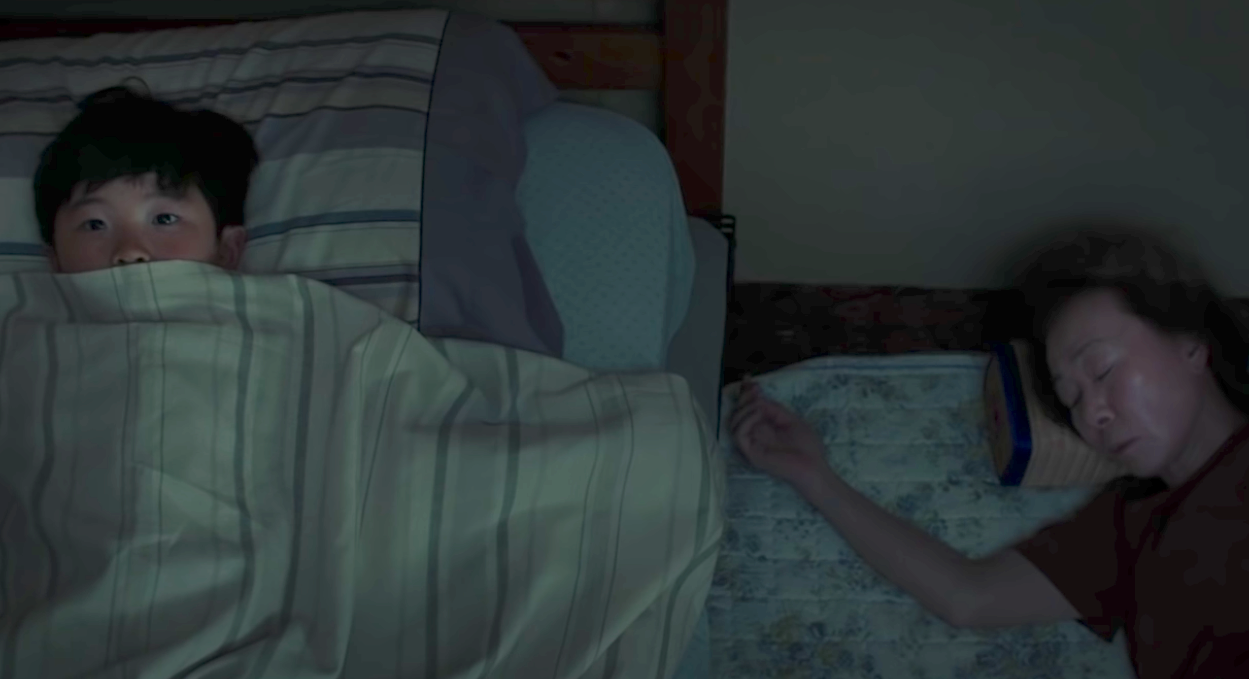
My own mother’s mother, the only grandmother I ever really knew, followed her daughters from Seoul to the U.S. in the 1970s. She lived in Los Angeles, dividing most of her time among the households of my mom’s three sisters who also lived there, but would periodically travel across the country to stay with us for extended visits during the ’80s and ’90s. She only knew a smattering of English words, and my spoken Korean was basic at best, but like David, I went from finding her strange and exotic to a comforting, familiar presence.
She wasn’t, mind you, your standard sweet old lady, any more than Soon-ja was. While kind to me, she had a tart tongue for others, enjoyed going out and shopping for gewgaws, and excelled at sports and games. A devoted Dodgers fan, she was obsessed with major league baseball and, like Soon-ja, also loved to watch professional wrestling, which she firmly believed was 100% real. I have fond memories of watching long hours of baseball and WWF with her, entertained not so much by what was on the TV as my grandmother’s excited and often salty running commentary in Korean. She liked to play hwa-tu (also known as go-stop), the card game Soon-ja plays with the children in Minari; I liked it, too, though I preferred to secret away the cards, because I thought they were so pretty, and create my own games and stories with them.
All of which is to say, while watching David’s scenes with Soon-ja, never had a film felt so immediately culturally recognizable or so specifically personal to me. I know that woman, I thought; I know the world she inhabits. I even knew what David meant when he squalls, “Grandma smells like Korea!” (To quote another Korean American critic, “merely hearing that line became a piercing reminder of my own grandmother’s scent: a mixture of soybeans, herbs, and perfumed makeup.”) How could that person and that slice of my life be captured so perfectly and precisely by someone I didn’t even know?
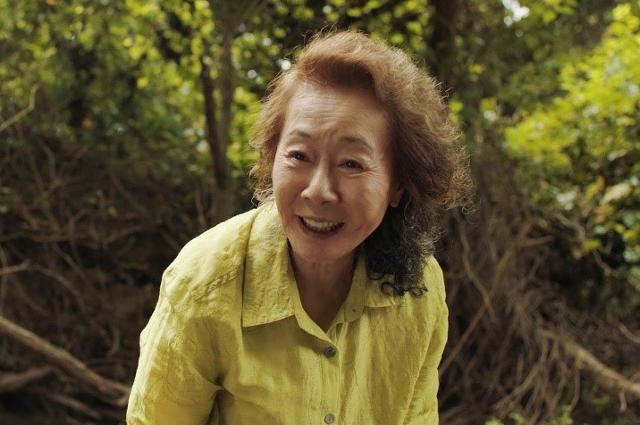
Undoubtedly a lot of the credit goes to the delicate craftsmanship of writer-director Lee Isaac Chung, who drew from his own family story and childhood in rural Arkansas. I wrote in 2019 about The Farewell “Its very specificity, which [Lulu Wang] admirably refused to compromise, is ironically what gives the movie such broad appeal.” That’s even truer of Minari and the way it makes the details of Chung’s experience feel at once intensely personal and unexpectedly universal.
When it comes to Soon-ja, however, Chung credits Youn for this feat of emotional alchemy:
I never felt like I had to explain who this person was to her. And honestly, what was fascinating to me was that she talked a lot about her own grandmother while thinking about what she wanted this person to be like. So she went very personal with it. I love that she found echoes of her grandma in the script.
Chung told Youn not to concern herself with capturing the details of what his own grandmother was like. And yet...
…after making the film, my mom watched it and we talked about how Yuh-jung Youn was able to capture the spirit of my grandma somehow. My mom couldn’t stop dreaming about her mom, my grandma. But she would see Yuh-jung Youn as her mom now.
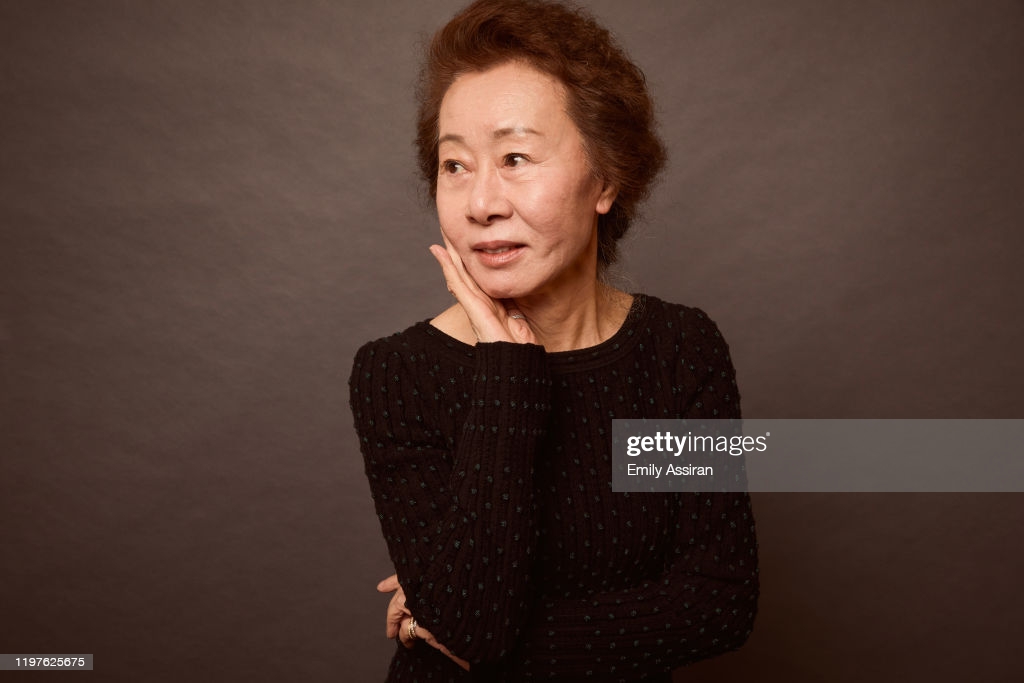 Youn Yuh-jung, South Korean acting legend.
Youn Yuh-jung, South Korean acting legend.
As any good Korean American movie lover would do, after seeing Minari I bugged my parents to see it, too, as soon as possible. They did, and my mom emailed me afterwards praising the film’s subtlety and the quality of the acting. She also commented that the grandmother reminded her of her own mother.
So maybe there really is a universal Korean grandmother essence somewhere out there in the dream-ether that Youn was able to channel. I like to think of her as the guardian spirit of Minari. Like the herb she plants, she can take root and flourish anywhere, and we are all the richer for the memories she evokes.
